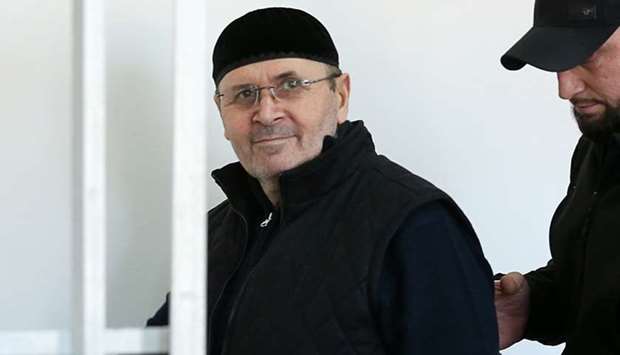A Russian court granted parole Monday to Oyub Titiyev, the head of the Chechen branch of rights group Memorial convicted this year on controversial drug charges, the NGO said.
The court "agreed to a parole request for Titiyev. Now he must be released within 10 days," Memorial representative Oleg Orlov told AFP.The 61-year-old was sentenced in March to four years in a penal colony for drug possession, in a case condemned by Amnesty International and other global rights groups.
Titiyev's lawyers said the case was connected to his investigations into the secretive prison system of a region notorious for rights abuses.
Kremlin critics say drug charges are routinely used in Russia to silence rights workers and activists.
The release came as authorities in Moscow faced public pushback against the arrest of an investigative reporter named Ivan Golunov, also on drugs charges.
But Orlov told AFP this was not connected to the Chechen court's decision.
"We do not see any connection with the detention of Golunov on drugs charges. We have been waiting for this decision for a long time."
Memorial speaks out about human rights violations in Russia and has accused the Chechen leader Ramzan Kadyrov of overseeing a "totalitarian" regime that uses kidnappings and torture.
Kadyrov on Monday said he "welcomed" the court's decision to release Titiyev.
"I always advocate that punishment should pursue the goal of educating and correcting a person," he said via the Telegram messaging service.
Amnesty International also welcomed the activist's release but said the decision still fell short of justice.
"If justice is to prevail, Oyub Titiev's conviction should be quashed, and he must be given access to an effective remedy, including compensation, for his unlawful imprisonment," Amnesty's director for Eastern Europe and Central Asia, Marie Struthers, said in a statement.
Titiyev's predecessor as the regional leader of Memorial, Natalya Estemirova, was kidnapped and killed in 2009. The rights group said the killers were acting on the orders of the local authorities.

